
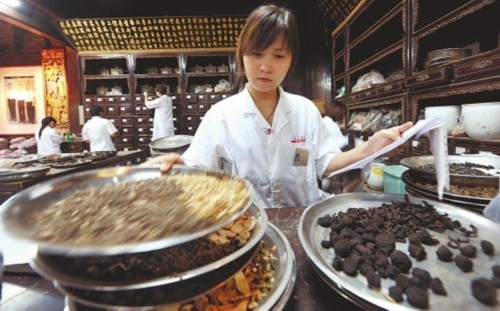 |
| Flu TCM: just a placebo? |
In scenes reminiscent of the SARS outbreak a decade ago and the 2009 bird flu outbreak, customers across China have been lining up at pharmacies to buy isatis root beverages, known as banlangen in Chinese, after authorities said it could be used to prevent H7N9 bird flu infections.
With H7N9 causing sporadic infections and several fatalities across eastern China, authorities have been eager to come up with solutions to calm an anxious public, and as one of the most common traditional Chinese medicine (TCM) products, banlangen was an obvious choice.
In contrast to other recent cases of panic buying which were engineered by drug companies or caused by wild rumors, the suggestion to use banlangen was backed by the authorities.
The National Health and Family Planning Commission (NHFPC) and the State Administration of Traditional Chinese Medicine both published treatment and prevention guides, advising different forms of TCM and prescriptions, including banlangen, to prevent bird flu.
Despite this official backing, the public remains skeptical over banlangen's ability to protect against bird flu.
An online survey by Sina with over 80,000 participants showed that over 45 percent of respondents did not trust the TCM prescription given by health authorities. Most of them asked the question: if H7N9 is a new virus that has not appeared before, how can those experts say that TCM will be useful if there haven't been enough cases to perform tests?
Evidently these doubts aren't affecting sales. According to the survey, some 47 percent said they would still buy some TCM, as there was no other alternative.
TCM emergency plans
As of press time, seven regions had announced TCM plans to prevent the H7N9 bird flu virus, which has claimed nine lives and caused 28 cases of infection across eastern China.
"After 2003, when TCM worked well in treating SARS, the top health ministry built a TCM emergency procedure," said an official surnamed Li from the press office of the health department in Jiangsu Province, where eight people have been infected.
Li told the Global Times that under the procedure, local governments, especially those with cases of infection, should formulate their own TCM prevention plans based on the guide mapped out by the top health authorities as soon as any new epidemics emerged.
"Taking into account the local climate and geographical characteristics, experts concluded that banlangen and the astragals root would be useful to prevent bird flu viruses, including H7N9," said Li, while refusing to comment on whether the expert panel had done any tests yet.
"Regardless of what kind of new virus is being treated, the herbalist doctors can write prescriptions after determining the imbalances inside the body based on the patient's different symptoms," one of experts on the Jiangsu panel told the Global Times.
He said that this was the reason why health authorities decided to use TCM as an emergency plan before any effective medicines or vaccines have been developed.
Insiders call it a placebo
The Jiangsu provincial government was among the first to release TCM prescriptions to treat and prevent the H7N9 bird flu virus, followed by Anhui, Zhejiang and Gansu provinces, as well as Shanghai, Beijing and Wuhan, the capital of Hubei Province.
The health authorities in Zhejiang Province, where three infections have been confirmed, suggested people carry a small cloth bag with different herbs inside, and smell the bag twice a day. The health department in Gansu asked people to massage each side of the nose, pressing down on pressure points, to prevent infection.
"Those are normal health care methods that TCM doctors have been promoting, even when it's not an emergency," Lin Jiangtao, director at the department of respiration at the China-Japan Friendship Hospital in Beijing, told the Global Times.
Lin said people may get healthier by following those guidelines and having herbal drinks, but without proper research the government should not be telling the public that TCM can fight H7N9.
"But from the government's perspective, recommending something harmless is better than nothing," a researcher who studied TCM and who works at the Chinese Center for Disease Control and Prevention, told the Global Times on condition of anonymity.
After the SARS outbreak, when infections were covered up at first, resulting in a cavalcade of public and international criticism, the government learned to react fast, she said.
However, taking too many herbs can have side effects.
Dai Jingang, an attending doctor at the Experimental Research Center at the China Academy of Chinese Medical Sciences, told the Global Times that herbs like isatis root or astragals root could dissolve the heat that becomes concentrated in people's lungs and hearts, helping to ease symptoms like high fever, but having too much would make people vulnerable to certain blood diseases.
"If those kinds of cases occur, not only will people feel that the government has been irresponsible, but the reputation of TCM will also be damaged," said Dai.
Profit motive?
Guo Lizhong, a professor with the Nanjing University of Chinese Medicine, echoed Dai and added that TCM doctors would never give such a simplified prescription before fully analyzing the patient's condition.
A TCM practitioner makes a diagnosis by looking at the color of one's tongue and face, and feeling their pulse as well as asking questions. Different patients, even those suffering from similar diseases like the flu, would receive different prescriptions because their own body conditions differ.
"The synthetic drugs and prescriptions given by officials could be effective, but not for all of them," said Guo.
As major cities like Shanghai and Beijing come out with TCM plans, sales of herbal medicine jumped and TCM stocks rose. The stock price of Guangzhou Pharmaceutical Holdings Limited rose by 10 percent on Monday, the maximum daily rising limit allowed in the Chinese stock market.
"It is an opportunity for TCM supporters to promote traditional medicine. It has no competition now," a manager surnamed Lu from the company, told the Global Times.
But Lu said the good news would not last long for TCM companies. "When consumers calm down and other medicines are developed and approved for production, and especially when people find TCM is not a real method of prevention or treatment, stock prices will take a large hit. It has happened before."
Latest development of H7N9 in China[Special]


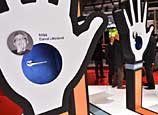
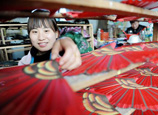


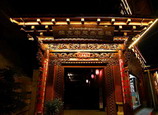
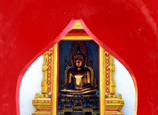

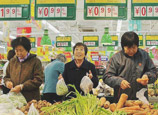








![]()
